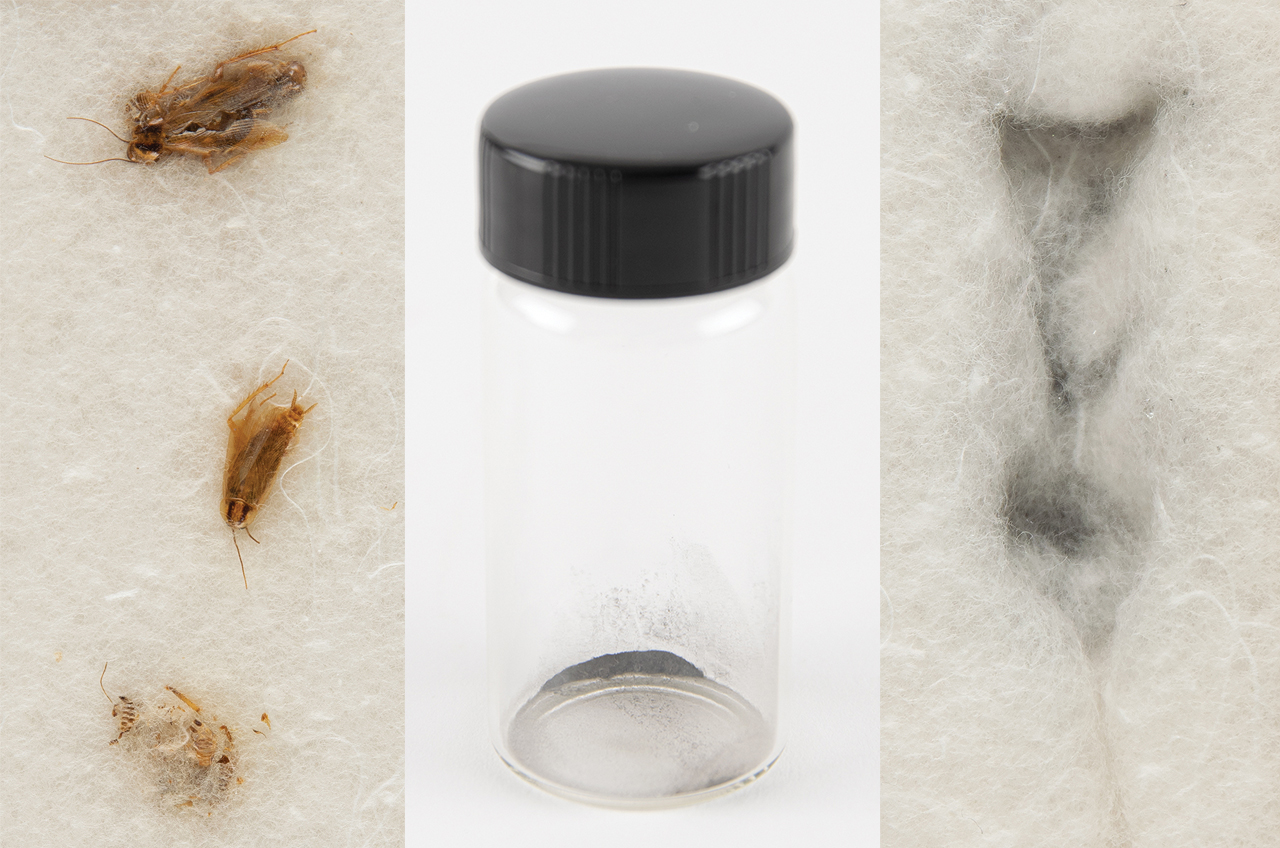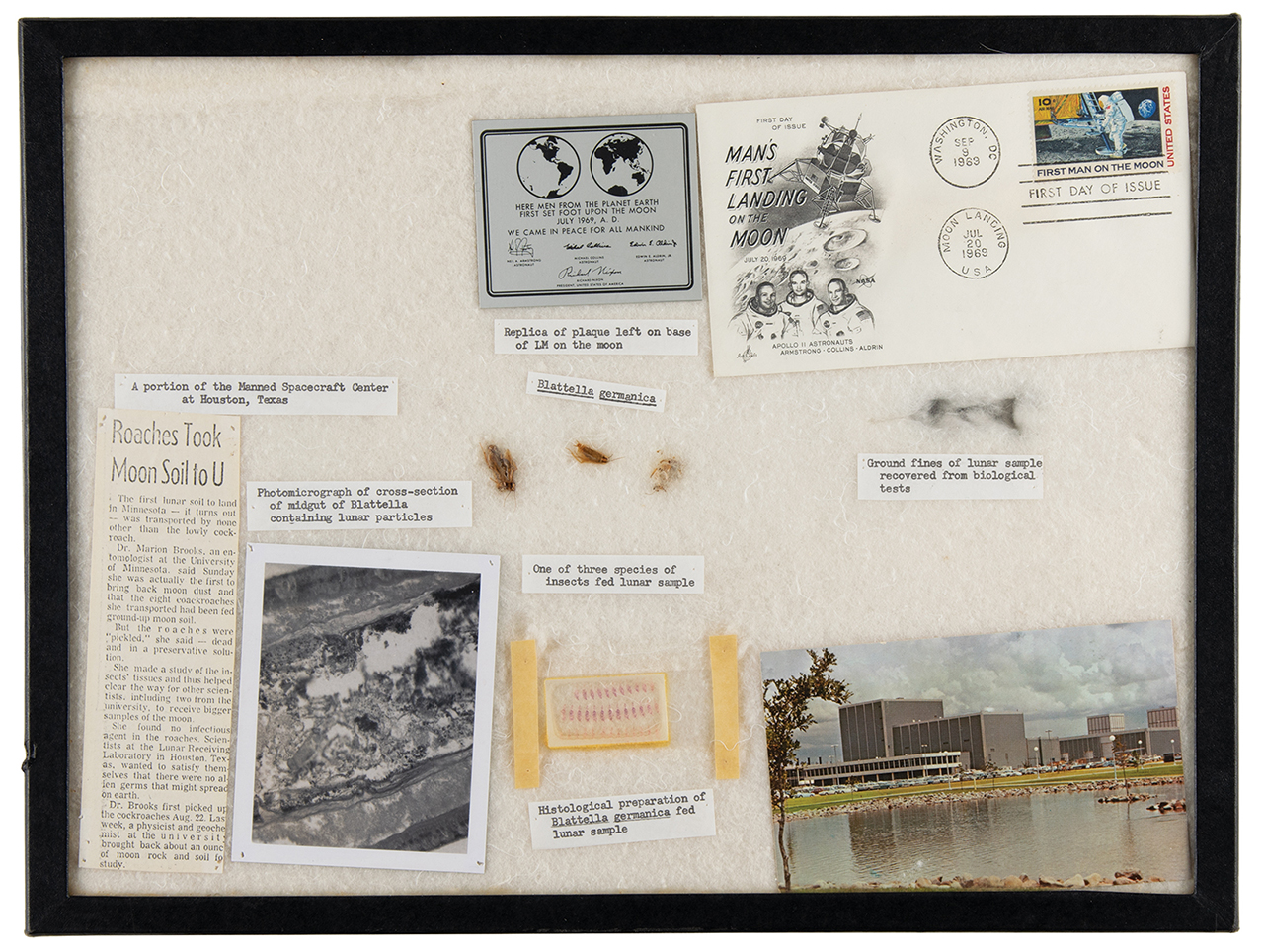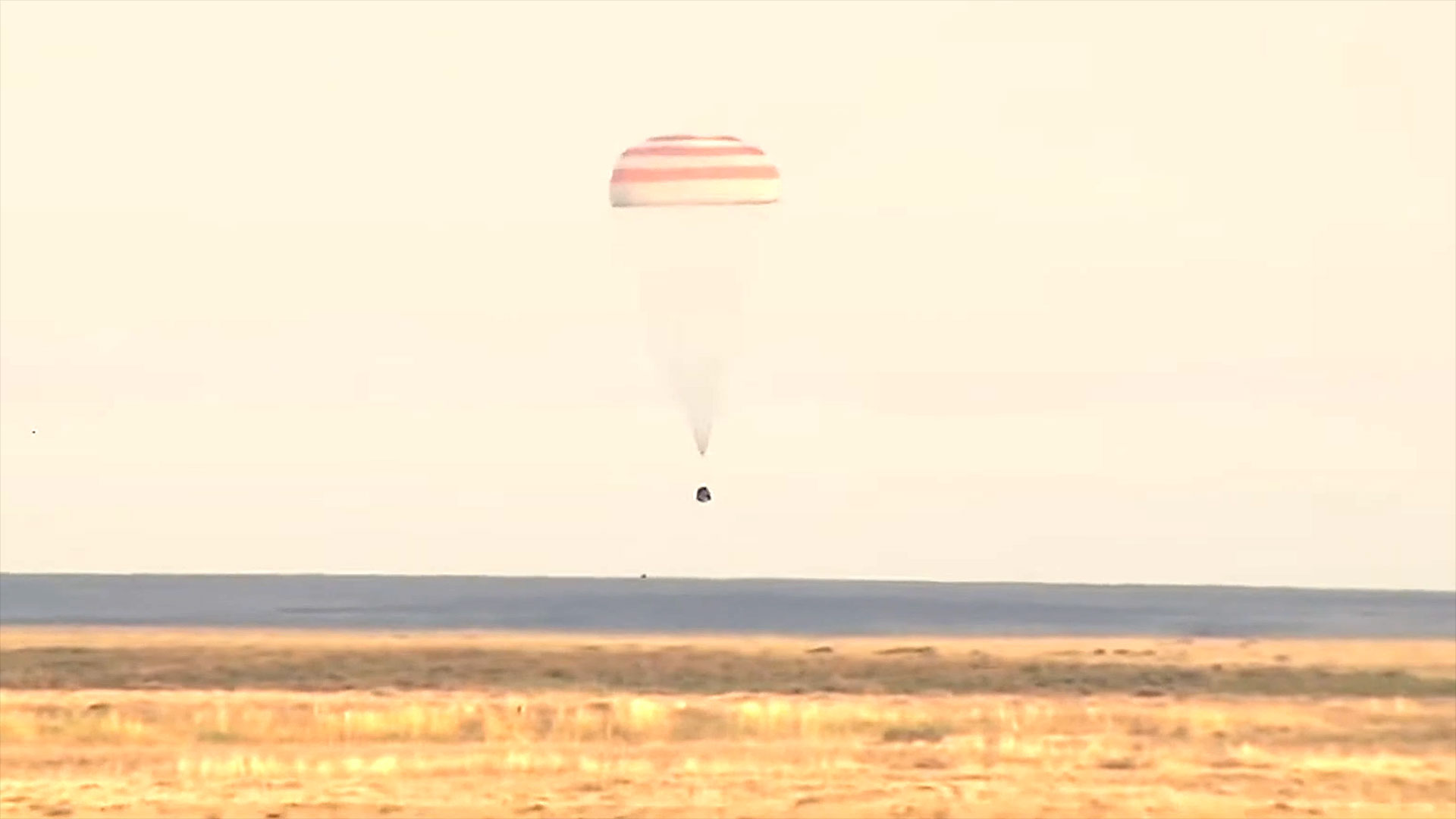NASA halts sale of cockroach-eaten Apollo 11 moon dust
'NASA asserts legal ownership of the materials...'

As it turns out, attempting to sell moon dust that was extracted from the stomachs of cockroaches does indeed bug NASA.
So much so, that the space agency requested RR Auction of New Hampshire halt its sale of the once-digested lunar sample. The lot in question, "Apollo 11 Lunar Soil Experiment (Cockroaches, Slides, and Post-Destructive Testing Specimen)" had been set to fall under the hammer on Thursday evening (June 23), as part of the live bidding segment of RR's "Remarkable Rarities" auction.
"NASA asserts legal ownership of the materials consisting of the Apollo 11 lunar dust experiment ... based upon the information and documentation provided in the description of the lot and evidence regarding NASA's contemporaneous contracting practices," an attorney in NASA's Office of the General Counsel wrote RR Auction in a letter on Wednesday, a week after first reaching out to the firm. "It is clear and undeniable that the materials consisting of the experiment are owned by NASA."
The lot under contention comprises what remains from the late Marion Brooks' research into the physiological effects of lunar material on Blattellas germanica, or German cockroaches. The insects had been fed moon dust by NASA scientists in the immediate aftermath of the 1969 Apollo 11 lunar landing mission. After no ill-effects were seen while astronauts Neil Armstrong, Buzz Aldrin and Michael Collins were held in quarantine, the (now dead) cockroaches were handed off to Brooks, an entomologist from the University of St. Paul, for more thorough study.
Related: NASA fed Apollo 11 moon rocks to cockroaches (and then things got even weirder)

Included in the auction was a small vial of moon dust that Brooks had carefully extracted from the cockroaches' corpses, as well as three of the remaining (dead) cockroaches and two boxes of tissue slides for microscopic study.
RR Auction at first rejected NASA's request to stop the sale, asking the agency to better explain how it arrived at its decision, both factually and legally. After further correspondence, the firm changed its stance.
Get the Space.com Newsletter
Breaking space news, the latest updates on rocket launches, skywatching events and more!
"As strange as this lot may be, the historic value of the role these cockroaches played in the U.S. space program is unquestionable. While RR Auction takes no position on the legitimacy of NASA's claims, we always seek to cooperate with the U.S. government on its claims of ownership and decided to withdraw the lot to allow the parties to resolve clear title," Mark Zaid, RR Auction's attorney, said in a statement provided to collectSPACE.
Prior to the start of the sale, which began on May 26, RR Auction had expected the lunar material and cockroaches to sell for as much as $400,000. At the time the when lot was withdrawn, it had received 12 bids totaling $36,300.
This was not the first time that Brooks' Apollo 11 archive had been auctioned. In 2010, three years after Brooks died, her family consigned the cockroaches and moon dust to the former Regency-Superior Galleries of Beverly Hills, California, which sold the lot for $10,000.
"NASA is not aware of such auction," NASA's attorney wrote of the sale from 12 years ago. "More importantly, the auction does not make this potential sale of the items proper or legal. The continued sale of these items is an improper and illegal disposition of NASA property."
The decision by RR Auction to pull the lot leaves only two known cases where loose, collected moon material (as opposed to naturally delivered meteorites) has been legally sold. In April of this year, Bonhams auctioned a microscopic sample of Apollo 11 moon dust for $504,375. In that situation, the lunar samples had been released by NASA to a collector after a series of lawsuits.
Prior to that, three tiny pebbles brought back by the former Soviet Union's Luna 16 robotic probe was sold by Sotheby's for $855,000 in 2018.
Follow collectSPACE.com on Facebook and on Twitter at @collectSPACE. Copyright 2022 collectSPACE.com. All rights reserved.
Join our Space Forums to keep talking space on the latest missions, night sky and more! And if you have a news tip, correction or comment, let us know at: community@space.com.

Robert Pearlman is a space historian, journalist and the founder and editor of collectSPACE.com, a daily news publication and community devoted to space history with a particular focus on how and where space exploration intersects with pop culture. Pearlman is also a contributing writer for Space.com and co-author of "Space Stations: The Art, Science, and Reality of Working in Space” published by Smithsonian Books in 2018.In 2009, he was inducted into the U.S. Space Camp Hall of Fame in Huntsville, Alabama. In 2021, he was honored by the American Astronautical Society with the Ordway Award for Sustained Excellence in Spaceflight History. In 2023, the National Space Club Florida Committee recognized Pearlman with the Kolcum News and Communications Award for excellence in telling the space story along the Space Coast and throughout the world.










